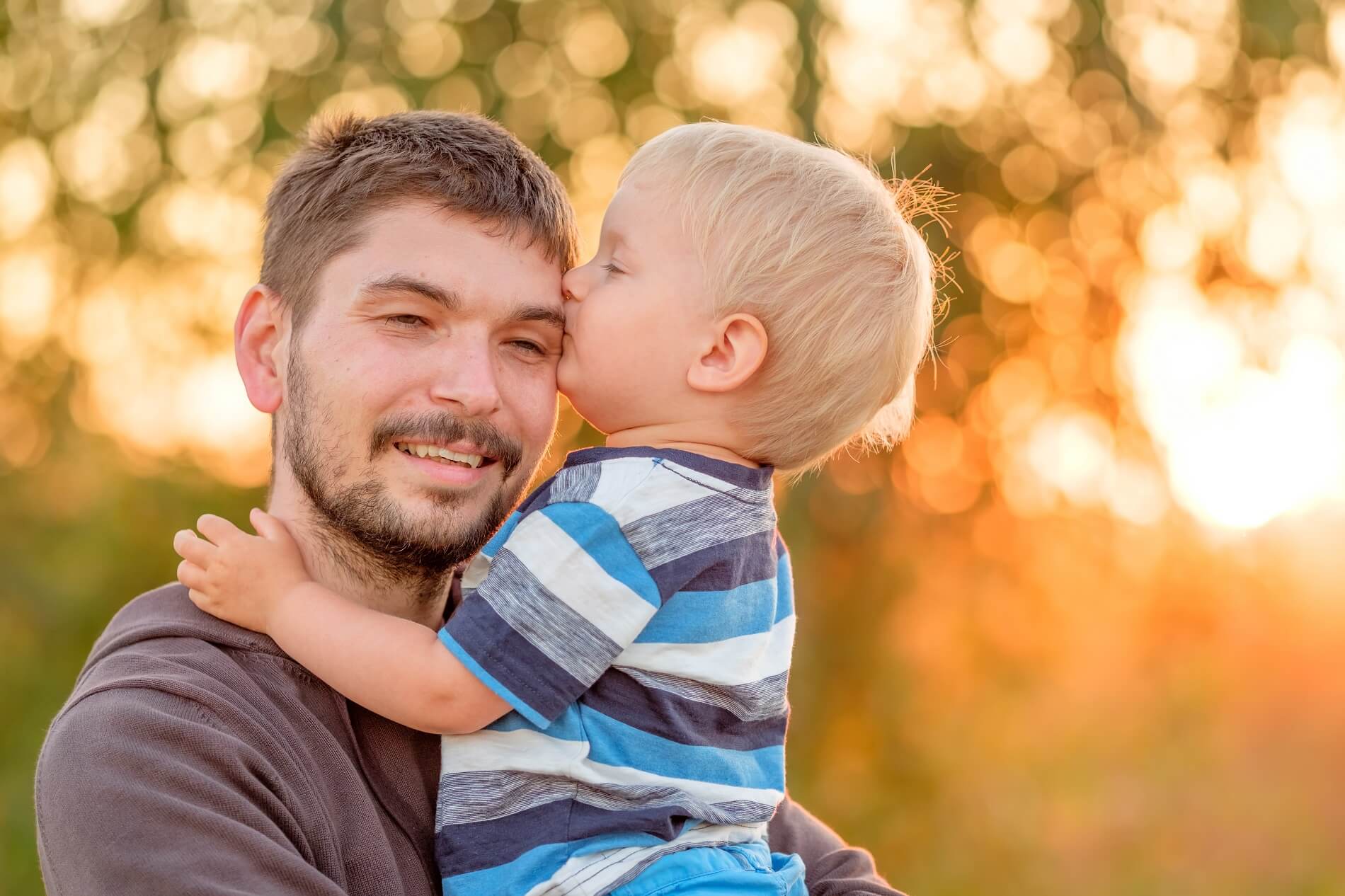Clinical psychologist, author, and parent, Dr. Robert Naseef joins us this week from Philadelphia for our 2nd podcast together. In our last podcast on Ambiguous Loss a year ago we discussed how we can unpack the ‘why’s’ and ‘what ifs’ that parents feel when learning their child is neurodiverse, how to see the strengths in our child and be the energetic parent our child needs us to be. Dr. Naseef runs an online support group for fathers that is ongoing through the pandemic, and has continued to see clients virtually. Welcome back, Dr. Naseef!
Support for Fathers of Children on the Spectrum
Autism Father’s Support Group
As we get used to the new normal, Dr. Naseef has been working virtually. He’s done some guest podcasts and I saw him on one a month or so ago from Special Needs in my City where he discussed his support group for fathers and I really wanted to invite him back to discuss this, among other things. The support group that he co-facilitates with Dr. Michael Hannon, the father of a teenage son on the spectrum, started just over a year ago at the AJ Drexel Autism Institute in Philadelphia and is now online.
It’s a diverse group of fathers: multi-faith, multi-racial and includes neurodiverse dads! So they have different points of view. It’s supportive, energetic and insightful for everyone who’s come, Dr. Naseef says. Now that they switched to online, they’ve had visitors from people around the country and from abroad. It’s open to any fathers or grandfathers. You only have to email to be put on the mailing list. Everyone is welcome! Dr. Naseef says that sometimes mothers even get on the mailing list so they can press their husbands to attend.
What is the Process for Fathers?
Men often get involved with workshops or groups because their wives or female partners press them to do it. It’s very frequent, Dr. Naseef shares. Some men find it on their own and sometimes it’s an email that’s been forwarded to them. This happens because it’s very hard as men to express the softer side of their feelings, Dr. Naseef says. It’s a boy code, even though things have changed. One thing he likes to point out is that developmental psychology tells us that male infants are actually more emotional at birth and then are socialized to not cry, and are left to cry more often.
Once those feelings come out, though, Dr. Naseef continues, those feelings in Dads are quite similar and parallel to those in Moms. It’s just human, but it’s been inhibited. So when they start out they encourage Dads to say what’s going right, what are they struggling with, what do they want to talk about and usually it comes out as coping strategies or ‘fixing’. They stress on supporting each other about what it’s like inside when you hear other Dads talking about this. It all comes out, Dr. Naseef says.
If the first thing that comes out is anger, such as a Dad being angry with his child’s bus service, then the meeting goes that way. Another time it might be about shame when a Dad talks about how he feels when he goes out in public. They also share an app called groupme to share photos and stories of their kids with each other, so there’s been connections formed outside of the meetings that started when the group met in person and has intensified during the pandemic.
Relationships and Community
It is so important to be able to share your experiences as a father with other fathers who ‘get’ what you’re experiencing. Dr. Naseef says it makes you feel like you’re not alone. They also really try to create an atmosphere of safety where you can say whatever you want or need to, and that it stays here. Be open and be honest so you get the most out of it, he tells them. When you don’t have the words for it and your partner is overwhelmed by it, or you feel you don’t have the space, it’s important.
That feeling of brotherhood and solidarity is really powerful.
The world of service providers is mostly female and sometimes not so good at connecting with a father, who is also not saying much. When fathers get more engaged and open up, service providers become more comfortable, too, and address their needs more directly, Dr. Naseef explains. I shared Dr. Kathy Platzman’s story that a father told her at the moment of his child’s diagnosis he felt like he had the most friends in the world in other fathers in his shoes, while at the same time feeling alone because he had not time or energy to connect with any of them.
Dr. Naseef says that there is a universal experience in that and I offered that one advantage of social media has been connecting people through these online communities. He says that there are more groups popping up and they are a part of the Washington State father’s network. There’s a group in Toronto called Special Dads, and a number around the country sharing ideas and resources to and for each other.
Shared Experiences
I asked Dr. Naseef if he ever has to prompt that emotional contribution from the group. He said usually it just unfolds naturally because there are a number of men who attend regularly enough that there is a tone and comfort that is set, but sometimes as experienced facilitators they will start with a question. This happened after the murder of George Flloyd, for instance. It was very intense worrying about a police officer misunderstanding an autistic child, especially if they are non speaking. The group had a feeling of gasping for breath, almost.
One father, for instance, shared that his son just could not understand the curfew and why they had to stay indoors. It was tough. Other times, Dr. Naseef shares, it’s celebrating the progress their children are making. Many said that being home with their child during the pandemic they realized how much their children could do, and posted videos to each other. Relationships have strengthened by being at home, he says. They are thriving in a different way without the social pressure. But it varies, he continues. Many kids cannot deal with the technology and others miss the routine of school.
There are some desperate situations, too, such as those in the south being flooded out of their homes. But when it comes to families, Dr. Naseef says you can usually make a difference in some way. It’s finding ways to cope in the situations we’re in during this pandemic. It could be teaching their children to put clothes in the laundry, for instance. The pandemic has families pulling together and relationships strengthening, which is relevant to the DIR/Floortime perspective, Dr. Naseef says.
A Spectrum of Fathers
I wondered if fathers of a newly diagnosed child attend looking for answers from them since Dr. Naseef and his co-facilitator are both fathers of sons on the spectrum. Dr. Naseef says they try not to be the source of information in that way, although they will give information. Newer fathers do come, but it tends to be other fathers in the group sharing their experiences rather than them answer questions. A question he has answered was about whether or not to have more children. Dr. Naseef discussed the science he knew of and recommended to only have more children if they are willing to love and support the new child unconditionally.

Diagnosed or not, that second child is going to be different from your first child, he’ll say. If you don’t think you can love the child as they are, no matter what, then don’t go there. This brought a sense of relief that there was an answer, even if it’s not an easy answer. Dr. Naseef has heard this question often travelling around the world from young families.
Typically, though, Dr. Naseef says he just shows up as another Dad who knows how to run a support group, and typically it’s the fathers with differing ranges of experience offering what worked for them to others in the meeting. Dr. Naseef says that their support group even has neurodiverse fathers and this provides great perspective. He brings up the book, Why Does Daddy Always Look So Sad? by Jude Morrow, an autistic father of a neurotypical son and his struggles to connect with his son.
Regressions, Recoupments and Progress
In Dr. Naseef’s career he has seen that the majority of kids on the spectrum make slow, steady progress through their lifetime, but yes there can be many regressions along the way. We want to look at behaviour as communication to determine what is causing the change. It could be environmental or sensory, he offers. Perhaps there was a staff change at school. It really could be anything but we need to wonder, guess, and problem solve.
You also see changes during adolescence. Dr. Naseef says that this is when boys start looking to their Dads more, they need their Dads more, and they identify with their Dads more. In our podcast with Mike Fields he discussed how he connect through gaming and I mentioned that my husband can’t wait until our son can play role-playing, fantasy games like Dungeons and Dragons! Dr. Naseef joked that I might get pulled in–that if my son wants me to play with him, he will let me know!
Access for All
Dr. Naseef shares that the Diversity is Awesome post really has been a highlight for him, where a diverse group of fathers share their experiences. Pointing out the racial disparities in the diagnosis and treatment of children of colour is very important to him as well. Children of colour are often diagnosed later, misdiagnosed, and have less access to services, he says, and it is a passion for him because his son is a man of colour. Keeping his son safe and happy is a priority for him, like every father.
Every child should get the state-of-the-art services, not just educated, white parents. The International Council on Development and Learning (ICDL) has been instrumental in getting DIR/Floortime coverage from Medicaid in New Jersey and the P.L.A.Y. Project has been working on insurance coverage in MI, IL, OH and other states.
The 3 'A's
Autistic self-advocate Stephen Shore calls for awareness, acceptance, and appreciation so you can be the energetic parent your child needs.
A great thank you to Dr. Naseef for joining us again and for all of his work supporting other fathers parenting children and adults on the autism spectrum. Please consider sharing this post via Facebook or Twitter and feel free to share relevant comments, questions or experiences in the Comments section below!
Until next week… here’s to affecting autism through playful interactions!




Hello! I’m a BCBA looking for resources for the dad’s of the kids that I work with. I was wondering if you could send anything my way or have any support groups?
Hi there,
Just wondering if you would share this support group for Dads who have children with autism, thanks in advance
Mark
Please see instructions for how to get access to this support group at the link provided at the bottom of the blog post provided in the link: https://drrobertnaseef.wordpress.com/2020/09/22/diversity-is-awesome/